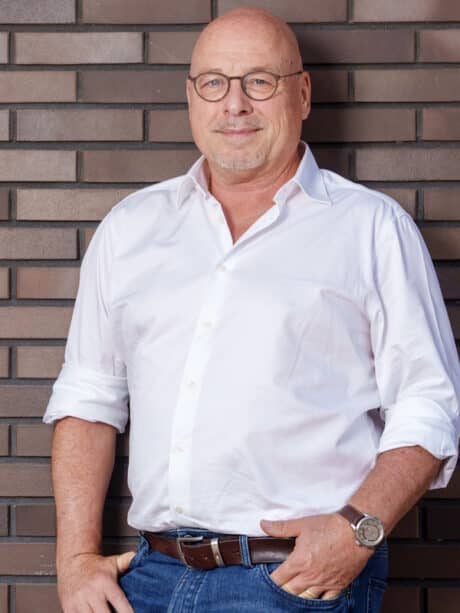


Maurits Hendriks
Maurits Hendriks is a renowned international sports coach and executive with an impressive track record in elite sports. His sharp vision on leadership, talent development, and innovation makes him a highly sought-after advisor in both the sports and business worlds.
About Maurits Hendriks
Maurits Hendriks is a renowned international sports coach and executive with an impressive track record in elite sports. He led the Dutch men’s hockey team to Olympic gold in 2000 and guided Spain to a European title and Olympic silver. As Chef de Mission for TeamNL at the London 2012, Sochi 2014, and Rio 2016 Olympic Games, he created a high-performance environment that enabled Dutch athletes to excel. From 2008 to 2022, he served as Technical Director of NOC*NSF, playing a crucial role in establishing the Netherlands as a top-tier sporting nation, consistently securing a top-10 position worldwide.
His career began after studying Law and Communications, but his passion for coaching took him abroad at a young age. Following successful periods with various Dutch premier league hockey clubs, he joined the staff of the Dutch national hockey team in 1995, helping it become the world’s best. It was during this time he learned that staying at the top is an even greater challenge than reaching it. At the tumultuous Sydney 2000 Olympics, the Netherlands secured gold once again, offering valuable early lessons in leadership.
After this triumph, Hendriks moved to Spain, where, as head coach, he elevated the men’s team from 11th place to the global elite. He bridged cultural differences and introduced innovative concepts, such as the Euro Hockey League and the blue playing field. Many of today’s hockey rules, such as the self-pass and shoot-outs, were his innovations.
In 2009, he returned to the Netherlands as Technical Director of NOC*NSF. There, he introduced policy initiatives like the “Top 10 Study,” laying the foundation for the Netherlands’ consistent top-10 world ranking. He established the High Performance Team to optimize support for athletes and coaches and launched TeamNL, bringing together 850 athletes from various disciplines under a single flag.
His influence extended beyond sports policy; he joined the Top Team for Sport and was actively involved in sports innovation. His experiences were captured in the 2016 book Presteren (“Performing”), offering insights into the challenges and successes of the Olympic journey. His role on the IOC’s Coordination Commission (CoCom) for the PyeongChang 2018, Tokyo 2020, and Beijing 2022 Olympic Games reflects his global impact.
In 2022, Hendriks transitioned into the world of football as a director at AFC Ajax, where he was responsible for the youth academy, women’s football, medical departments, data analysis, and new infrastructure projects at ‘De Toekomst’. Despite internal challenges and external pressure, he managed to implement changes but ultimately chose to step down when public criticism began affecting his family.
Despite his administrative roles, Hendriks remains passionate about coaching. In his free time, he coaches his children’s hockey teams and continues to contribute to sports development at all levels. He has even designed a roadmap for the use of AI in elite sports. His sharp vision on leadership, talent development, and innovation makes him a highly sought-after advisor in both the sports and business worlds.

